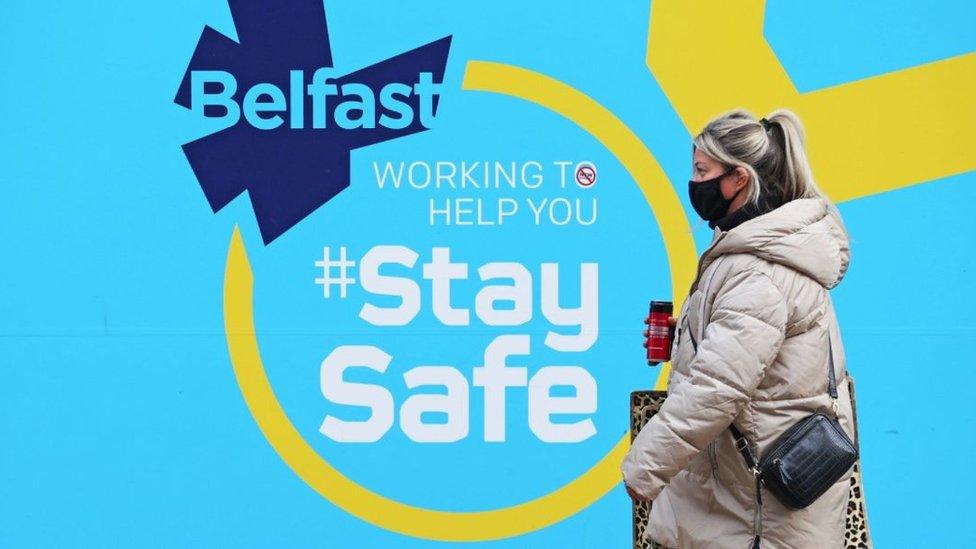Covid-19: NI hospital visiting rules to be relaxed
- Published
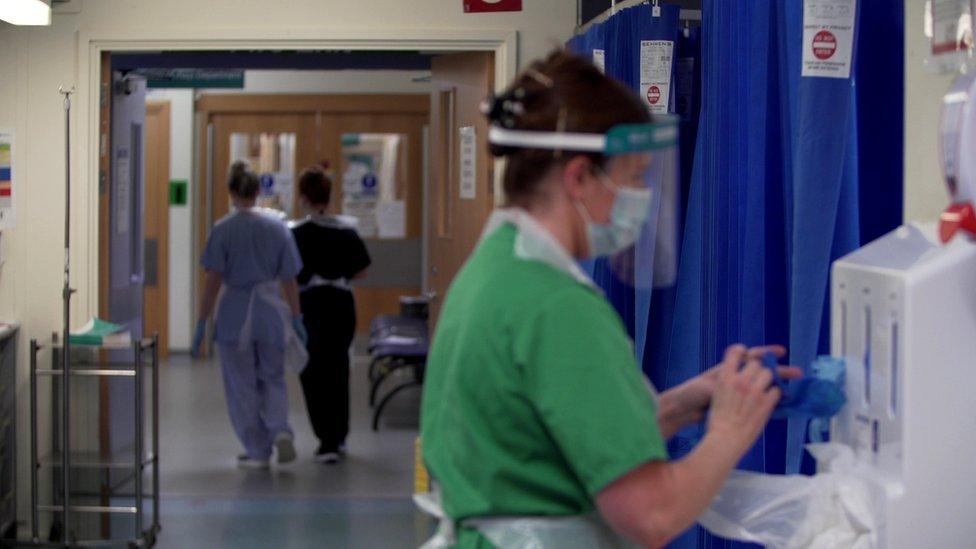
Hospital and care setting visits were largely suspended in January
The guidelines for visiting hospitals and other care settings around Northern Ireland are set to change from Monday.
The new rules will allow at least one face-to-face visit per week by one person.
Daily one-hour visits will be permitted in hospices and women attending maternity services will be able to have someone with them.
A variety of new visiting arrangements will be available for Covid-free care homes, including some indoor visits.
It comes as it emerged that more than half a million people in Northern Ireland have now received a Covid-19 vaccination.
The latest figures from the Department of Health show 505,188 first doses have been given.
Almost 32,000 people have had a second dose. These are mostly healthcare workers and care home residents and staff.
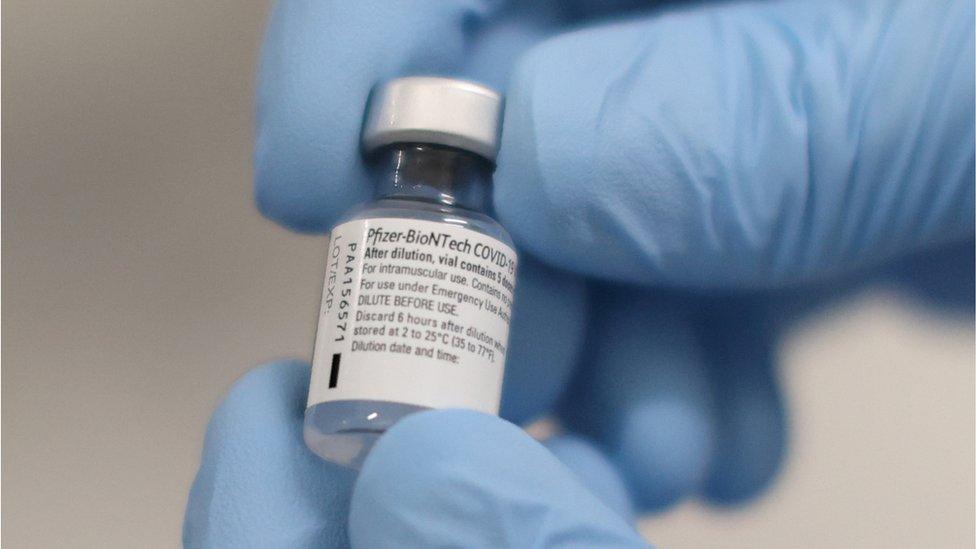
Over half a million people in NI have now received a Covid-19 vaccination
Hospital and care setting visits were suspended in all but the most limited circumstances in January due to high community infection rates of Covid-19.
In some cases even end-of-life and palliative care visits were not possible.
But infection levels in Northern Ireland are falling since the vaccination programme began rolling out in early December 2020.
All four UK chief medical officers have recommended that the regional alert level should move back from level five to level four with immediate effect, enabling visiting restrictions across all care settings to be slightly relaxed.
The Department of Health said the new measures would be kept under constant review and "revised where appropriate".
Earlier on Friday, the Department of Health announced that the vaccination of residents and staff in care homes in Northern Ireland is now complete.
The department said uptake was high but "not everyone took the opportunity to receive the vaccine".
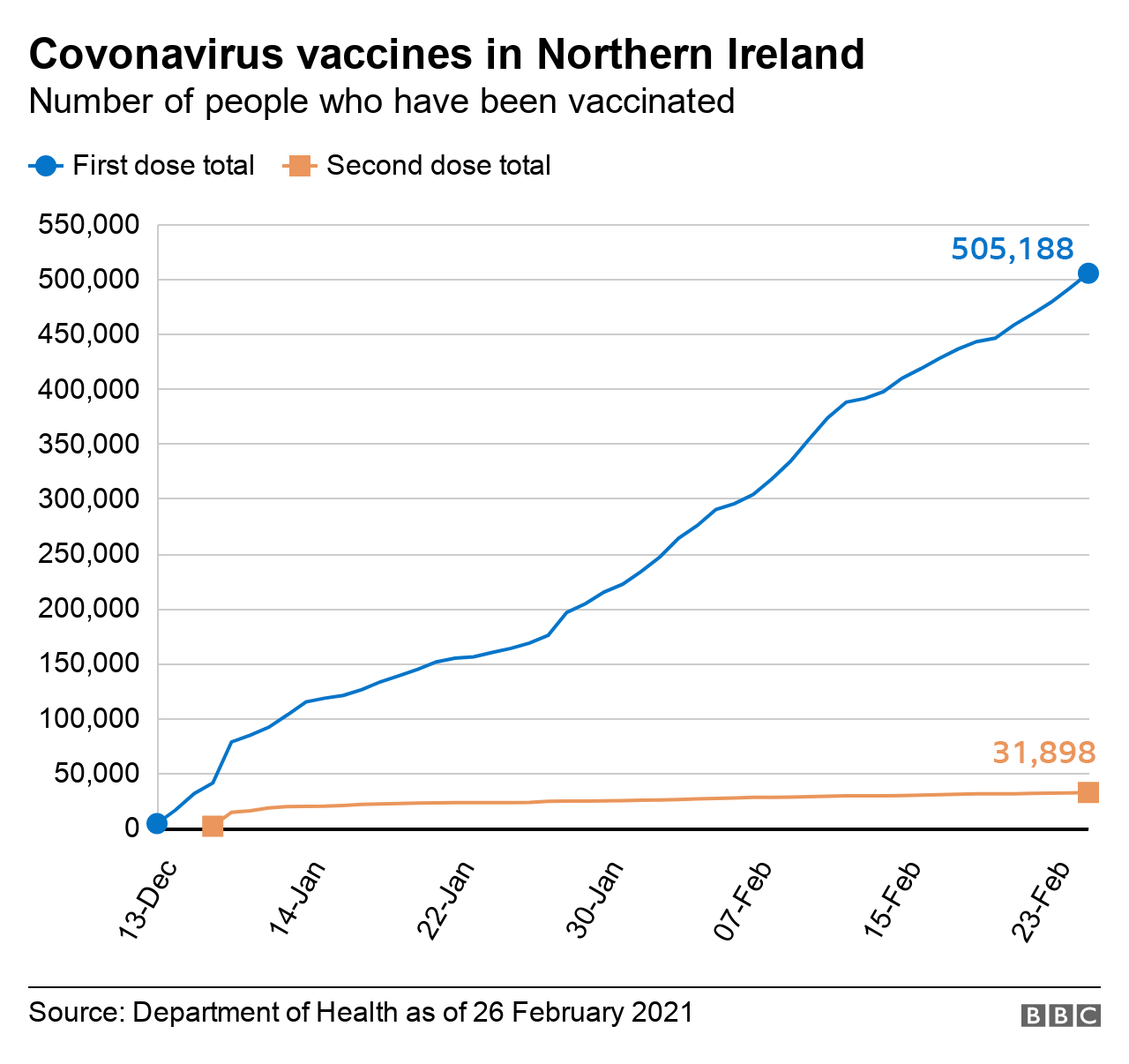
Health Minister Robin Swann described the care home announcement as a "milestone".
Thanking all of those involved, he said the vaccination had provided "vital protection to our care home residents".
"We will need to maintain a precautionary approach, particularly given the prevalence of the virus in the wider community and the fact that vaccination of the overall population remains at a relatively early stage," he added.
'Maintain maximum vigilance'
The measures to protect care home residents and staff will remain in place.
They include infection prevention and control practices, social distancing, use of protective equipment for staff and testing for coronavirus.
Until now all care homes have been encouraged to adopt the "care partner scheme", which allows a designated relative to be a regular visitor to a resident, with infection controls in place.

There are outbreaks of coronavirus in 28 care homes in Northern Ireland, down from a peak of more than 160 during the recent surge.
Northern Ireland's deputy chief medical officer Dr Lourda Geoghegan said all of those who receive a Covid-19 vaccine must maintain "maximum vigilance".
An epidemiology study to examine the effect of vaccination on care homes in Northern Ireland is to begin shortly.
Over-40s next in line
The Joint Committee on Vaccination and Immunisation (JCVI), which advises the UK government on the vaccine roll-out, has said vaccinating people in order of age is the fastest way to cut Covid-19 deaths.
Priority based on jobs would be "more complex" and could slow down the programme, it said.
Once all at-risk groups in phase one have been offered at least one dose of the vaccine, people in their 40s will be next in line, followed by those aged 30-39.
All four nations of the UK will follow the recommended approach.
- Published26 February 2021
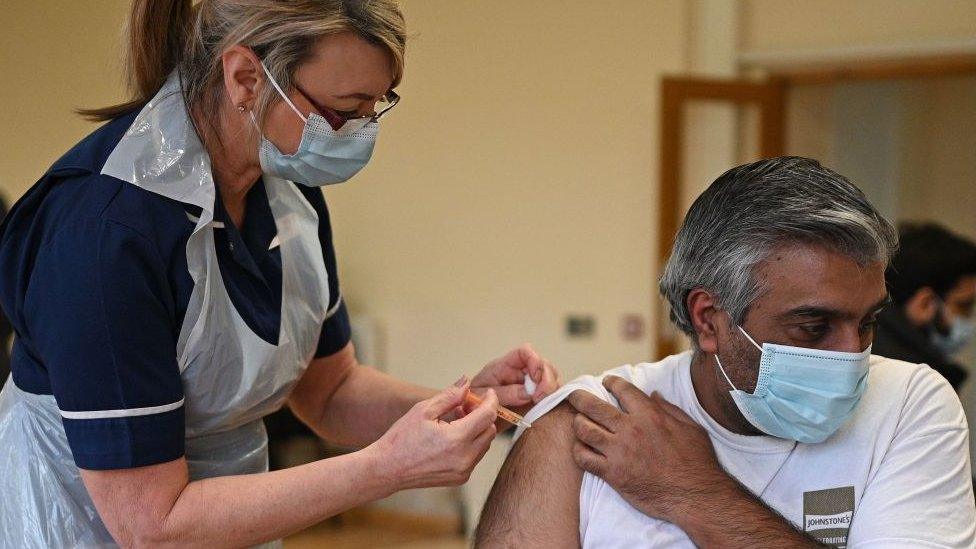
- Published24 February 2021
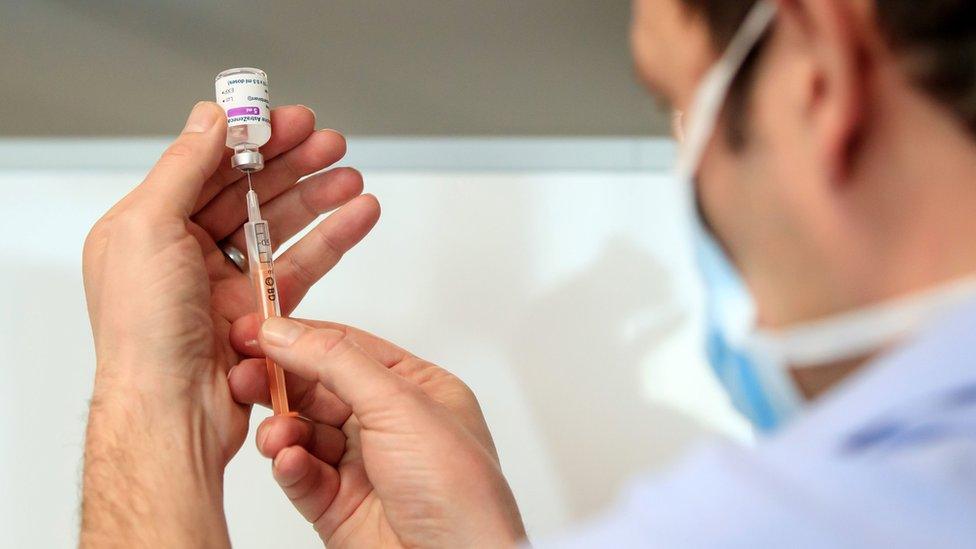
- Published24 February 2021
